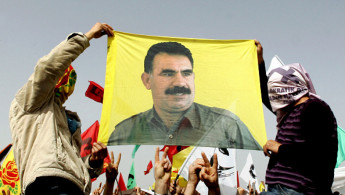Imprisoned PKK leader Abdullah Ocalan expresses readiness for peace with Turkey
Abdullah Ocalan, the imprisoned leader of the Kurdistan Workers' Party (PKK), has expressed his willingness to bring an end to decades of conflict with the Turkish state, according to his nephew and Kurdish lawmaker, Omar Ocalan. The message was conveyed after a family visit to the high-security Imrali Island Prison, where Abdullah Ocalan has been held since 1999.
Omar Ocalan, a member of the Peoples' Democratic Party (HDP) representing Urfa, met with his uncle on 23 October 2024. During the meeting, Abdullah Ocalan discussed the current political situation in Turkey and the wider region.
The Kurdish leader reiterated his readiness to resolve the conflict through peaceful means, emphasising that "if the conditions are met, I possess the theoretical and practical capacity to move this process from a ground of conflict and violence to one of legal and political resolution."
Omar Ocalan also highlighted the continued isolation of his uncle, calling for the right to regular family visits, a legal entitlement under Turkish law. He shared these insights on the X platform, where he noted that his last visit with Abdullah Ocalan occurred in March 2020, making this recent meeting particularly significant.
This development comes amid a broader initiative led by Devlet Bahçeli, leader of Turkey’s Nationalist Movement Party (MHP). Bahçeli has proposed a path toward resolving the Kurdish issue, conditional on Abdullah Ocalan disbanding the PKK. This proposal, which has the backing of Turkish President Recep Tayyip Erdogan, suggests that dissolving the PKK could serve as a foundation for renewed peace talks with Turkey's Kurdish population.
The Turkish government's interest in such a peace process reflects the potential to revive negotiations, which collapsed in 2015 following the failure of the 2013 peace initiative. Observers note that if the PKK were to lay down arms as part of this process, it could mark a turning point in resolving one of Turkey's longest-running conflicts.
Founded by Abdullah Ocalan in the late 1970s, the PKK has waged an armed struggle against the Turkish state, initially advocating for an independent Kurdish state and later pushing for greater autonomy within Turkey's borders. The conflict, which began in 1984, has claimed the lives of over 40,000 people on both sides and continues to devastate regions in southeastern Turkey and northern Iraq.
Since 2022, Turkey has continued military operations against the PKK, including its latest campaign, "Operation Claw-Lock," which targets PKK fighters in northern Iraqi Kurdistan. This cross-border conflict has displaced hundreds of Kurdish villagers and resulted in casualties on both sides.
Turkey struck suspected Kurdish militant targets in Syria and Iraq for a second day on Thursday following an attack on the premises of a key defence company which killed at least five people, the state-run news agency reported.
Abdullah Ocalan's latest statement has garnered significant attention from both the Kurdish community and political observers. Many view his call for dialogue as a crucial step toward resolving the Kurdish issue and addressing the political and humanitarian crises in the region. His readiness to facilitate peace, provided the Turkish government responds positively, could signal a shift from the decades-long cycle of violence.
However, challenges remain. The PKK is classified as a terrorist organization by Turkey, the United States, and the European Union, and continues to demand greater autonomy for Kurds. The path to disbanding the PKK and engaging in Turkey's political process may face resistance from both sides, even as voices advocating for a peaceful resolution grow louder.
With Abdullah Ocalan's health reportedly stable and his willingness to engage in peace talks reaffirmed, the focus now shifts to how Turkish authorities will respond to these new overtures for dialogue.





 Follow the Middle East's top stories in English at The New Arab on Google News
Follow the Middle East's top stories in English at The New Arab on Google News


